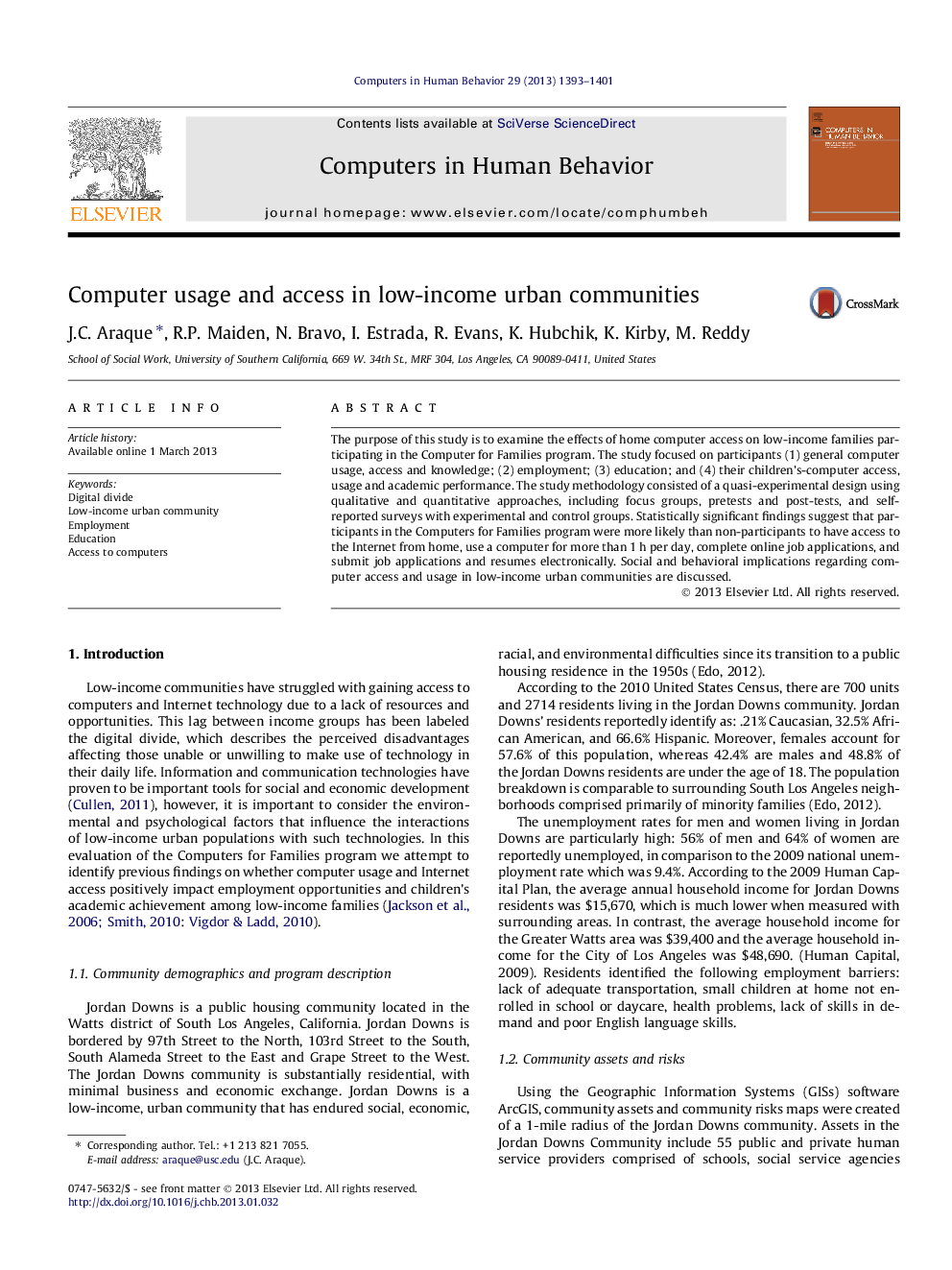| Article ID | Journal | Published Year | Pages | File Type |
|---|---|---|---|---|
| 351037 | Computers in Human Behavior | 2013 | 9 Pages |
The purpose of this study is to examine the effects of home computer access on low-income families participating in the Computer for Families program. The study focused on participants (1) general computer usage, access and knowledge; (2) employment; (3) education; and (4) their children’s-computer access, usage and academic performance. The study methodology consisted of a quasi-experimental design using qualitative and quantitative approaches, including focus groups, pretests and post-tests, and self-reported surveys with experimental and control groups. Statistically significant findings suggest that participants in the Computers for Families program were more likely than non-participants to have access to the Internet from home, use a computer for more than 1 h per day, complete online job applications, and submit job applications and resumes electronically. Social and behavioral implications regarding computer access and usage in low-income urban communities are discussed.
► The study examines the effects of home computer access on low-income families. ► Participants use a computer and/or internet for more than 1 h per day. ► Participants completed and submitted resumes and job applications electronically.
